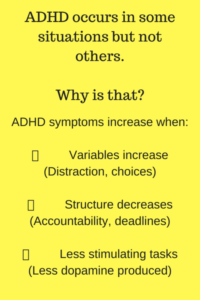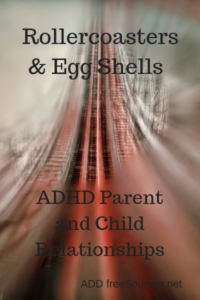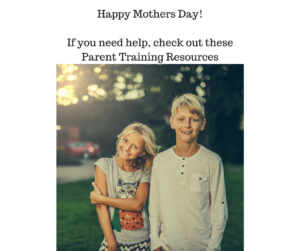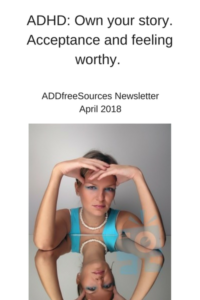Welcome to July.
Hope your days are not too hot and you have time to relax this summer. If planning and packing for a long vacation is difficult for you or your family, you might try for easier to plan day trips or backyard picnics.
Remember, holidays are a break from everyday routines and challenge normal coping skills. The lack of structure and increased social demands can be a problem for both kids and adults with ADHD. If you need tips on planning vacations, packing, traveling and ideas for the summer break for kids, see our Pinterest Board, Holidays and other Celebrations. Scroll down to find last year’s articles as well.
For myself, spending a lazy afternoon reading in the backyard is just my speed. I like to disconnect and get lost in a new book more than taking a chance on everything going wrong on a trip. I travel not to see the sights but to visit friends and family. I like to walk and talk more than looking for what others consider fun.
My own experience challenges the perception that all people with ADHD are adventurous, always in motion and like doing multiple things at the same time. This month’s author, Michele Cook, however, agrees with this view of Hyperactive/Impulsive ADHD in To the Mom with the ADHD Child. Although she acknowledges that ADHD may well be both a blessing and a curse, Michele offers hope to parents that some ADHD traits can become positive aspects by adulthood.
I love the many tips she shares that have helped both her and her children manage their ADHD. She believes that adults can create an environment that can control most of the negative aspects of ADHD.“Having ADHD as a child is miserable, but having ADHD as an adult can actually be an asset. As long as you learn to manage the energy and focus the energy on the good, you will be great…
She continues, “As an adult, your responsibilities are entirely different. You need to be able to wear many hats, to switch focus many times a day, and to run around for most of the day… For (some) adults with ADHD, this is an environment they thrive in.”
I am NOT one of those people. Where Michele thrives under pressure, the many and varied responsibilities of adult life are often overwhelming and create major chaos in my life. Yet, I do not discount what ADHD coach Marla Cummins says In Are your ADHD Traits also your Strengths?
“I see clients all the time who succeed because of their ADHD traits, not despite it!
“It is a double-edged sword, to be sure. A strength can be a weakness and vice versa. The same trait that helps me to persist when others may give up can hinder me in other areas if I let it.”
Therapist Don Baker from Unpacking ADHD has created a meme of these “Mirror Traits of ADHD. “  This illustrates the idea of redefining symptoms as positive traits. This illustrates the idea that what one man thinks of as a disability, another may think of as his heightened ability. Neurodiversity is the idea that neurological differences like autism and ADHD are the result of normal, natural variation in the human experience. Neurodiversity: Reframing ADHD, offers a number of articles on this viewpoint.
This illustrates the idea of redefining symptoms as positive traits. This illustrates the idea that what one man thinks of as a disability, another may think of as his heightened ability. Neurodiversity is the idea that neurological differences like autism and ADHD are the result of normal, natural variation in the human experience. Neurodiversity: Reframing ADHD, offers a number of articles on this viewpoint.
I do agree with Michele that adults are better able than children to create an environment that works for the individual.  I like Dr. Charles Parker’s simple idea to explain why the performance of someone is ADHD is so often hit-or-miss. One of his video tutorials claims that ADHD is people with ADHD have way too much on their mind. Most symptoms disappear. when you “Decrease the number of variables and establish structure and reasonable limits for any given task.” You can also harness the Secrets of the ADHD Brain – using interest, a challenge, novelty, urgency or a strong sense of purpose to help spur action. This has been widely promoted by Dr. William Dodson but is echoed by most ADHD experts today.
I like Dr. Charles Parker’s simple idea to explain why the performance of someone is ADHD is so often hit-or-miss. One of his video tutorials claims that ADHD is people with ADHD have way too much on their mind. Most symptoms disappear. when you “Decrease the number of variables and establish structure and reasonable limits for any given task.” You can also harness the Secrets of the ADHD Brain – using interest, a challenge, novelty, urgency or a strong sense of purpose to help spur action. This has been widely promoted by Dr. William Dodson but is echoed by most ADHD experts today.
I cannot agree with the concept of neurodiversity because it denies the very real consequences of ADHD. A Canadian non-profit recently put out a report, the CADDAC Policy Paper – The seriousness of ADHD (Link works) that outlines damages that can occur.
To quote, “Attention Deficit Hyperactivity Disorder (ADHD) is a chronic neurodevelopmental disorder affecting approximately 1.5 million Canadians…”ADHD is not just a disorder of attention, but a disorder of self-regulation. This means ADHD predisposes individuals to adverse health outcomes and risky lifestyle behaviors such as smoking, alcohol and drug use, and poor diet and exercise.”
“Left untreated it can have devastating effects over the course of ones’ lifetime. ADHD is linked to an increased risk of mood and anxiety disorders, substance abuse disorders, transportation accidents, suicides, injuries, teenage pregnancies, unemployment, underemployment, and incarceration (Barbaresi et al. 2013, Ramsey and Rostain, 2016)…. A recent study (even) found that ADHD can shorten one’s life expectancy by up to 22 years if persistent into adulthood and reduces their healthy life expectancy by 8.4 years.”
Strength-based treatment is indeed the current model of controlling the worst emotional aspects of ADHD and helps us control our symptoms to the point where they no longer rule our lives. Dodson has a great article ADHD’s Common Denominators: 11 Hidden Truths that Unlock Treatment Success from ADDitude Mag. To state, “You have ADHD — so your treatment plan should be based on how people with attention deficit think, feel, and live. Dodson also urges that you “Don’t ignore medication. Medication evens the playing field and makes the changes possible.”
We don’t have to suffer. ADHD impacts all of us differently and the strengths we use to cope are uniquely our own. Rather than focus on remedying areas where you struggle, you need to use those specific tools that get you “in the zone” and help you start each morning feeling motivated and capable. You can combat the worst of future damage through diagnosis, treatment and attending to other disorders that so often accompany ADHD. The same strategies that Michele Cook names for children also work quite well for adults. Use these and other ideas you find here and in articles and video that include even new strategies. Learn to laugh at your own foibles, apologize, and carry on.
Don’t ever give up on learning the best ways to help your child or yourself live well with ADHD.
Joan Jager
If you’re not on Pinterest, you can access our boards through ADD freeSources on Facebook. Look for the Pinterest section on the menu.
Photo by Dollar Gill on Unsplash
Poster created on Canva


















